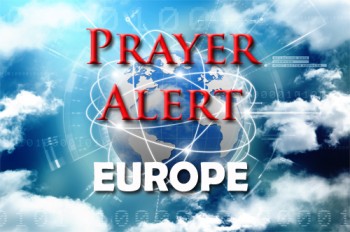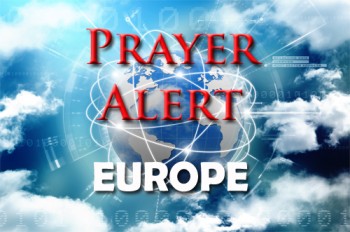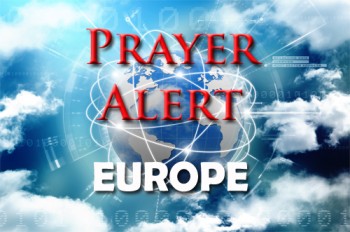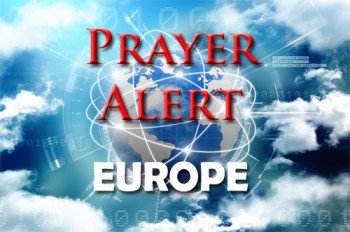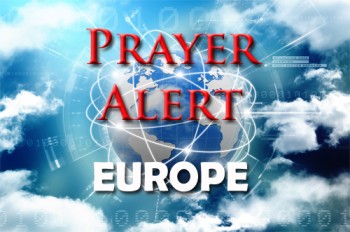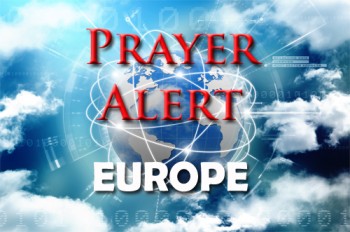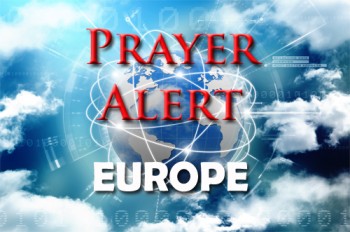Displaying items by tag: Europe
Ukraine: Russia 'biggest obstacle' to peace
Lithuania’s foreign minister has said that Russia represents the biggest obstacle to the peace process in Ukraine, as it represents itself misleadingly as a ‘neutral party’ in the conflict while actively participating. Ukrainian armed forces have fought Russia-backed separatists in Ukraine since 2014 and killed over 13,000 people. Moscow denies providing weapons, training and personnel to support the separatists, but independent observers, journalists and official monitors have substantial evidence to the contrary. Lithuania, with an ethnic Ukrainian population of 44,000 people, has sent military equipment to back Kyiv’s efforts in the war, and hosts 500 American soldiers to bolster NATO's eastern flank near Russia's borders.
Spain: UN convention on climate change
After Chile decided against hosting the 2019 UN climate change conference (COP25) following weeks of protests, the UN has confirmed that it will take place in Madrid, from 2 to 13 December. Chile will preside, with logistical support from the Spanish government.. Britain has been chosen to host the next climate summit, COP26, in Glasgow. On 26 November the UN stated that they intend to cut global emissions by 7.6% every year for the next decade to meet the 1.5°C Paris target. They warn that unless global greenhouse gas emissions fall drastically between 2020 and 2030, the world will miss the opportunity to work towards that target. Even if all current unconditional commitments are implemented, temperatures will rise by 3.2°C, bringing even wider-ranging and more destructive climate impacts. See also
Hungary pulls out of Eurovision
Hungary has pulled out of the Eurovision song contest, amid speculation it is ‘too gay’. A source inside Hungary’s public broadcaster, MTVA, said they assumed hostility to the contest’s LGBT+ links were behind the decision. One pro-government commentator described Eurovision as a ‘homosexual flotilla’ and said the country’s mental health would be better if it did not join the competition. MTVA, which discourages positive coverage of LGBT+, usually hosts the song contest whose winner goes on to represent the country at Eurovision. It said, ‘Instead of taking part in Eurovision, we will support the valuable productions created by the talents of Hungarian pop music directly.’ The winner will instead be given the chance to appear on domestic media shows and at festivals. Associates of prime minister Viktor Orban have control of much of the country’s media including state media.
Large-scale money laundering exposed
Iceland’s largest fishing company, Samherji, exploited legal loopholes and secrecy jurisdictions to enable corruption and environmental exploitation on a global scale. It used an anonymous shell company to launder and transfer 70 million dollars’ worth of illegal fishing activities off the coasts of West Africa, and bribed members of the Namibian government. Two Namibian ministers have already resigned over allegedly giving preferential access to fishing grounds. Samherji used shell companies in Dubai, Mauritius and Cyprus. Most of the money was traced to a bank account at a state-owned bank: the bank’s largest shareholder is the Norwegian state, which holds a 34% stake.
Europe and Brexit
Could Brexit be a symptom of issues facing Europe? When society turns away from God’s principles we risk making our desires our idols. For decades many of our nations have sought to make individualism a priority, whether pursuing selfish desires or not taking responsibility for the consequences of our actions, or sexually immoral expressions, or perhaps as a nation we think we are better than others or have some given right to be great. There is nothing new in these attitudes but we give in to them at our peril. The Old Testament is full of warnings to society as we seek to follow our own desires. Many observers from across the channel cannot understand how a nation known as the ‘mother of democracy’ could be in this mess. The UK and the rest of the EU need an answer to the Brexit question. For the UK it is about repairing division; for the EU, it is about protecting the integrity of a trading block that faces the complexities of a changing world of competing global powers.
Italy: Vatican City - child abuse allegations
The historical child abuse allegations against the Vatican continue after three former altar boys who were at a seminary in the Vatican in the 1980s have now accused two priests of sexually abusing them. They said they were between the ages of 10 and 14 at the time. The allegations will be explored in an investigative Italian TV show on 24 November.
Brexit uncertainty halts anti-trafficking work in Glasgow
A partnership between Romanian police and Glasgow Airport aimed at tackling human trafficking more effectively has been suspended. Flights between Romania and the UK have been identified as high risk for trafficking. Romanian officers had been travelling to Scotland and London to deal with the ‘high-risk’ flights from their country, as part of a collaboration described in an inspection report as ‘extremely useful’. Inspectors were told as long ago as February that the Scottish arrangement with the Romanian police had been suspended. Staff believed that this was due to the uncertainty caused by Brexit, but the Glasgow safeguarding and modern slavery team was hopeful that it would recommence at some point.
Venice ‘state of emergency’ flooding
Italy declared a state of emergency on 14 November after floods brought carnage to Venice. The prime minister described the flooding as 'a blow to the heart of our country'. The government took on 'exceptional powers' to respond to the damage, estimated at hundreds of millions of pounds, including millions in St Mark's Basilica alone. The mayor said the city was 'on its knees', and warned of 'widespread devastation' after an unprecedented combination of high spring tides and a storm surge of a 6ft 2in tide on the night of 13 November. The mayor has blamed climate change for the disaster, but there was also anger among Venetians at the corruption which has held up a flood barrier project.
Denmark: border checks
Danish authorities, struggling to quell a wave of bombings attributed to Swedish gangs, have introduced passport controls at the border with Sweden for the first time since the 1950s. Sweden has been rocked by more than 100 explosions in the first 10 months of this year, and another 13 blasts have rocked Copenhagen as well. The Swedish problem is directly correlated to their open arms policy for immigrants and refugees, especially those fleeing North Africa and the Middle East. Many consider the rise of the nationalist right in Europe is a direct result of politicians’ immigration policies. Pray against what many believe is the coming wave of a possible violent backlash.
Belgium: church welcomes migrants
The parish of Riches Claires has a dedicated committee that has worked for thirty years helping new arrivals to Europe. For many residents in Brussels the Christian outreach was a key step for their integration into the city. Most refugees in the church arrive after fleeing their countries of origin for economic or political reasons. However, arriving in their new home has not been easy for most, particularly those from Latin America who, for the most part, had to learn from scratch the intricacies of the local language. ‘The uprooting of our culture, of leaving our family members and leaving our friends is very painful,’ said Zoraida, a Colombian human rights defender. Over the years, the church community has evolved following the migratory waves. The first to arrive were Spaniards, then Chileans. More recently, it has been Venezuelans and Central Americans fleeing violence.
